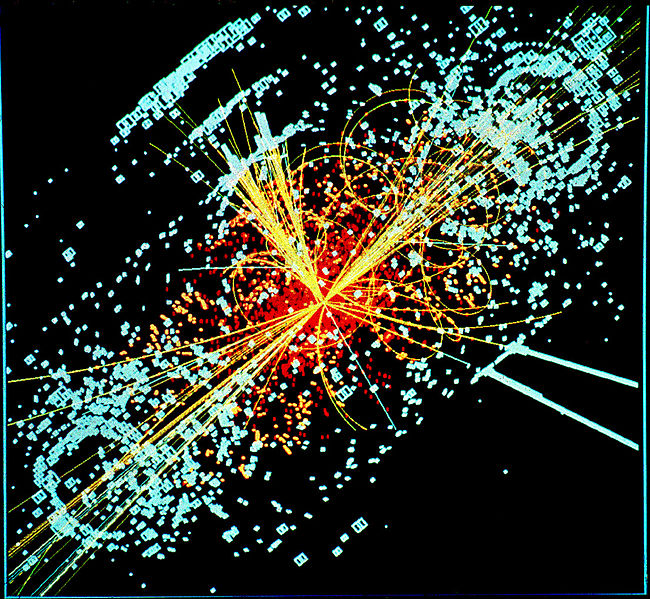Science News
What the Higgs?

At the end of July, the headlines read “Hints of Higgs” as two teams of physicists working at the largest particle collider, the Large Hadron Collider (LHC) in Switzerland, revealed sightings of “excess events” at a meeting in France. Nature News reported the story:
On Friday afternoon, groups working on the two main detectors at the LHC presented evidence of a few extra particles corresponding to something new at energies around 140 gigaelectronvolts (GeV). For now, physicists are only willing to call them “excess events”, but if the signal grows stronger as data accumulates, then it could be a sign of the Higgs boson…
A few weeks later, rock star physicist Brian Cox was quite hopeful in a three-part interview with Universe Today:
There are hints in the data recently that maybe that mechanism is right. We have to be careful. It’s not a very scientific thing to say that we have hints. (Part 1)
We’re making serious progress and we’re going to discover something like the Higgs particle, I would guess, within the next 12 months. (Part 3)
Then, last week, some bad news for the God particle. “Now for a bit of a reality check,” is how ScienceNOW began their article. Discover’s 80beats blog gives us the facts:
…at a conference in Mumbai on August 22, CERN scientists revealed news that set the physics community humming: in the energies so far explored, there’s a 95% probability that the Higgs doesn’t exist.
What?! And it turns out it was the same two teams of scientists who presented the “excess events” evidence last month that revealed the news in India.
The Higgs boson is the keystone to the standard model of particle physics. Nature News describes it this way:
Since the 1960s, scientists have believed that the Higgs, or something like it, is needed to explain why some particles are heavy and others have no mass at all. The Higgs would also be the key to combining the weak nuclear force — which governs some forms of nuclear decay — with the electromagnetic force, into a single ‘electroweak’ force.
So “if the Higgs doesn’t exist, where does mass in the universe come from?” asks Amir Aczel in his interesting Scientific American blog subtitled, “Did Stephen Hawking Just Win the Most Outrageous Bet in Physics History?”
And if it does exist? It will be difficult to find. New Scientist gives us the dose of reality:
…the Higgs is now restricted to having a mass of between 115 and 145 gigaelectronvolts (GeV), or 122 to 154 times the mass of a proton…
It is at the low end of potential masses and so is the most difficult for the LHC to explore. A heavier Higgs would leave clearer tracks in the detector, but the lighter it is, the harder it would be to tell a true signal from other particles that produce similar tracks…
There's another explanation for the Higgs’s absence: it decays into particles we don't know how to detect, such as dark matter or as yet unknown particles.
So why do those of us outside the physics world care whether the Higgs exists or not? “Because it’s awesome,” reports Dave in “A User’s Guide to the Universe” blog. He offers more substantial answers, too, but that about sums it up for me. Assuming you care, why does it matter to you? Share your thoughts with universe and us below.
Image: Lucas Taylor